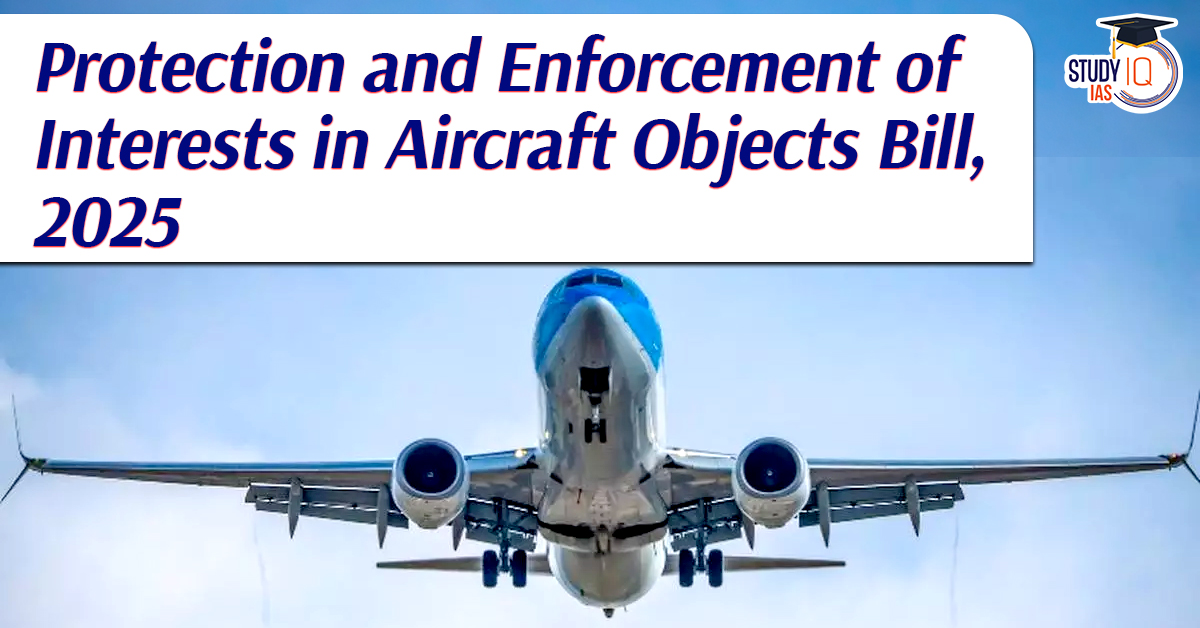Table of Contents
Context: Recently the Rajya Sabha passed ‘The Protection of Interests in Aircraft Objects Bill, 2025’, which seeks to turn into law the provisions of the Cape Town Convention and Protocol.
Key Provisions of the Protection and Enforcement of Interests in Aircraft Objects Bill, 2025
Legal Implementation of CTC in India
- Section 3: The Convention and Protocol shall have the force of law in India.
- The Directorate General of Civil Aviation (DGCA) will be the regulatory authority for implementation.
Responsibilities of Debtors (Airlines)
- Airlines must maintain and submit records of dues related to aircraft and engines.
- Ensures transparency in financial transactions between airlines and lessors.
Rights of Creditors (Lessors & Financiers)
- Creditors can exercise asset recovery rights under CTC.
- Before taking action, the DGCA must be notified about any airline default.
Handling of Aircraft During Airline Insolvency
- The resolution professional can keep aircraft assets for 60 days, provided that usage and maintenance charges are paid.
- This provision is controversial as the aircraft leasing industry prefers immediate asset repossession.
Exclusion from the Insolvency and Bankruptcy Code (IBC), 2016
- As per the Ministry of Corporate Affairs notification (April 2024), aircraft should not be part of insolvency proceedings.
| Cape Town Convention (CTC) – 2001 |
India’s Status in CTC
|
Importance of Aircraft Leasing in India
- 86% of the nearly 850 aircraft in India’s domestic airline fleet are leased rather than purchased outright.
- Leasing aircraft helps airlines preserve liquidity by avoiding heavy capital investment.


 Linking Aadhaar with Voter ID Endangers ...
Linking Aadhaar with Voter ID Endangers ...
 Article 142 of Indian Constitution, Sign...
Article 142 of Indian Constitution, Sign...
 Pakistan-Occupied Kashmir (PoK): History...
Pakistan-Occupied Kashmir (PoK): History...





















